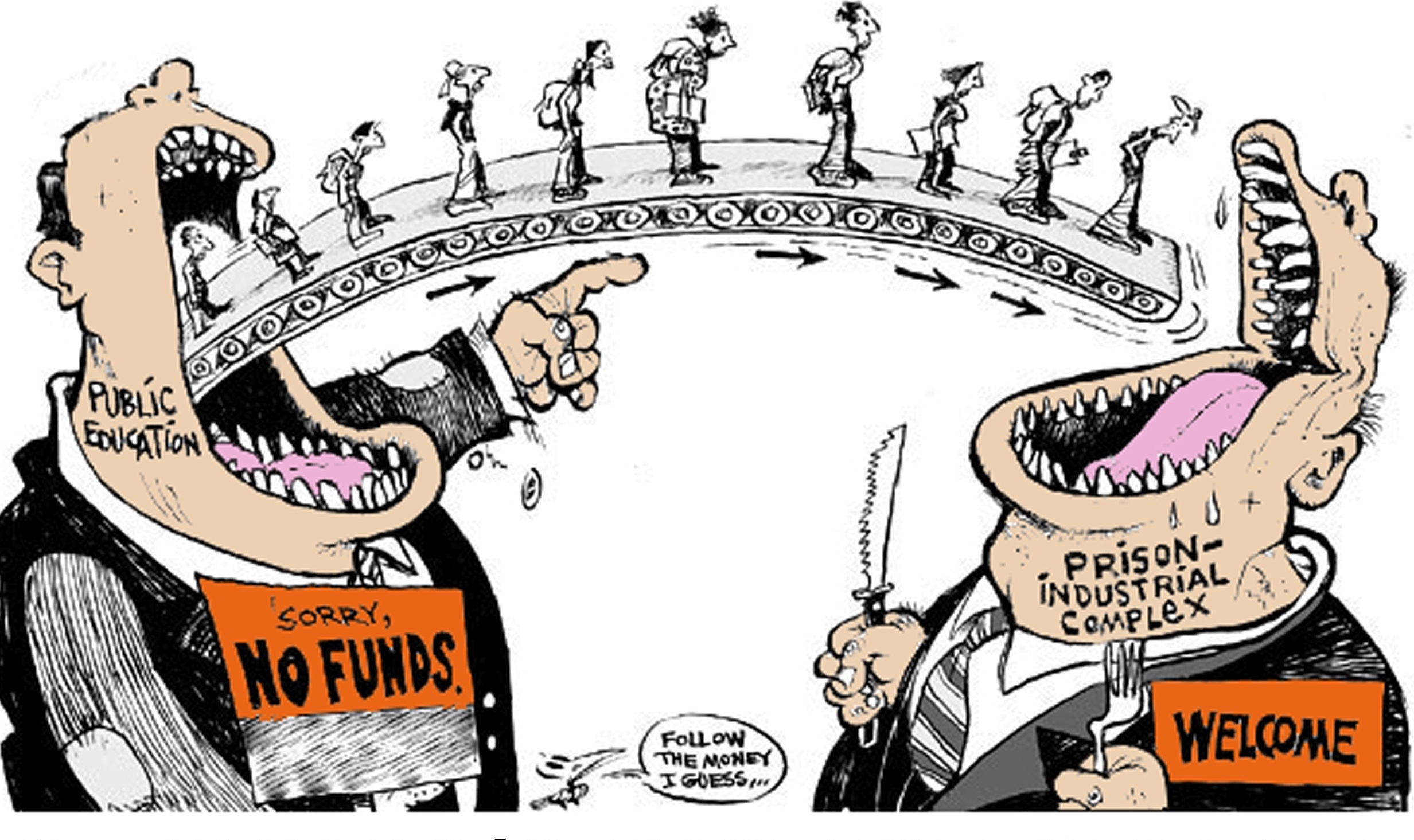Republican State Senator Aaron Osmond of Utah?proposed to repeal mandatory schooling on his blog last week, arguing that public education has led parents to become apathetic and detached toward their children’s learning and discipline. Before Utah made school attendance mandatory in 1890, according to Osmond, children viewed education as an opportunity and privilege. Now, however, they see it simply as an obligation that must be met. By repealing compulsory education, the responsibility for teaching and disciplining children would shift from schools to homes, where it belongs. As a former public educator, I agree with the Senator that the American education system needs some retooling. But Osmond’s “solution” — allowing parents to choose not to send their children to school — is unequivocally wrong, for five main reasons.
1. Aaron Osmond is not a time traveler.
Osmond suffers from golden age fallacy syndrome, which results in the erroneous belief that things are always in decline, that people were better behaved, and children minded their elders unconditionally. Osmond suggests that, before 1890, children loved school way more than they do now, as if children back then never got bored during class, never felt indignant toward a strict or hostile teacher, never got teased or ostracized by their peers. When conservative sentimentalists such as Osmond think back to the nineteenth century, they envision idyllic scenes from The Little House on the Prairie and Anne of Green Gables, conveniently ignoring the rampant racism, sexism, lawlessness and ignorance that dominated much of everyday life.

Photo credit: Emerging Civil War
I think if most of us now traveled back to Utah circa 1890, we would be appalled by people’s deeply bigoted attitudes and their tolerance of harsh mistreatment directed toward women, children and people of color. We haven’t yet stamped out these poisonous attitudes altogether, but public education has been instrumental in raising awareness of and discouraging bigotry, hatred and xenophobia.
2.?Cutting back on education won’t save taxpayer dollars. Instead, it will add to the tax burden.
Like most conservatives, Osmond also suffers from ‘anything-resembling-socialism-is-bad’ syndrome. Since public education requires taxpayer dollars to function, it’s automatically suspect. Osmond writes:
?But public education is not free?it costs taxpayers billions each year.
What he really means is we should be most concerned about the monetary cost of maintaining and enforcing public education. Do you know what else isn’t free, Sen. Osmond? Everything. Roads, bridges, emergency services, hospitals, parks, courts, libraries, and government offices. Why aren’t we talking about cutting these services as vehemently as we are education? And what about prisons? In Utah, the annual cost per inmate is $29,349. The annual cost per Utah student, on the other hand, is $8,224.?Sen. Osmond, have you not heard of the?“school-to-prison pipeline”? Those without a quality education are more likely to commit crimes and be incarcerated, thereby becoming exceedingly more of a tax burden than they ever were as students. What do you think the consequence would be were you to eliminate the requirement to attend school? Fewer prisoners?

On the subject of the cost of public education, no one said it better than former Harvard president Bok Derek:
If you think education is expensive, try ignorance.
3. If anything, parents have gotten a little?too involved in their children’s lives.
Osmond claims that public education has given parents the permission to disappear from their children’s lives altogether and allow schools to raise little Aiden and Brittney single-handedly. This couldn’t be further from the truth. Does Osmond not know what a “helicopter parent” is? Many education experts, in fact, argue the exact opposite?point about modern schools, that they have made parents more anxious and pushy about their children’s education.

Now that 120% of students carry a cell phone, they are always connected to Mom and Dad. When I taught school, I would catch students’ parents calling their children in the middle of class.?And since grades are now typically posted online, parents have access to their children’s academic progress on a day-to-day basis, whereas before, they had to wait for a mid-term progress report, or worse, the report card. If parents have become distant from their children lately, schools are certainly not to blame. But as always, conservatives such as Osmond allege to possess exclusive parenting knowledge. According to them, we heathen liberals are doing it all wrong. We’re either completely detached from our children’s lives or we’re too overprotective, thereby raising?a?“Nation of Wimps.”
4. Eliminating mandatory education would be harmful to the poor, as we already see during the summer vacation months.
Osmond is under the flawed impression that parents do a much better job than schools at educating children. He writes that we need to restore
the parental right to decide if and when a child will go to public school. In a country founded on the principles of personal freedom and unalienable rights, no parent should be forced by the government to send their child to school under threat of fines and jail time.
In case Osmond hasn’t noticed, thousands of parents already choose to practice their “personal freedom and unalienable rights” by homeschooling their kids. Many do a wonderful job. Such parents are and would continue to be involved in their children’s lives whether or not they were home-schooled. The young people who would be hurt the most by Osmond’s legislation would be those from lower-income households. Most educators see the results of?summer learning loss?firsthand. Whereas children from more affluent families might have the means to visit museums, attend plays and musicals, travel abroad and do other cultural, educational activities, children from lower-income families more often than not languish during the time between grade levels because they have little to do other than spend time with friends, watch TV or play video games. As a result, by the time school resumes again in late August, these students have fallen behind their peers and struggle to catch up. Not everyone is born into wealth and privilege as Aaron Osmond was, the nephew of celebrities Donny and Marie Osmond. If the Senator’s plan was implemented, we might find ourselves with a whole army of young people whose education comes courtesy not of college-trained instructors but XBox, Nintendo and Netflix.

5. It would be bad for women.
Everyone knows that most conservatives would prefer womenfolk to stay home, tend to the flock, tidy the nest and feed hungry mouths. Osmond’s plan, if enacted, would all but guarantee that mothers remain shackled in their homes. He writes:
[I]f a child consistently misbehaves, it’s the teacher’s right to send that child home to their parent until he or she is ready to respect and appreciate their opportunity to be educated.
I would be lying if I said I never fantasized about kicking a troublesome student out of my class for a month or two, but in reality, sending him or her home for general misbehavior is never an option. There are legitimate reasons for sending a child home such as illness, threatening a fellow student or teacher, or bringing a gun to school. (On second thought, Osmond might encourage that.) Another reason why it’s not an option is because, well, adults work during the day. In the Senator’s world, mothers would need to be on call during school hours to pick up little Jacob whenever he cuts up in class. Additionally, they would need to remain at home for however long it takes Jacob to gain a new-found appreciation for his education – a pretty arbitrary length of time to say the least. Despite these arguments, Sen. Aaron Osmond and I are in agreement about one thing: the U.S. education system is in dire need of reform. We continue to lag behind other countries such as China and India in math and science, and even though students in Finland spend far less time in school annually than American students, they outperform us in nearly every subject. Instead of abandoning public education, let’s strive to improve it. By framing his “say no to education” argument in the context of monetary value and government interference, Osmond makes it clear that he has no interest in improving anything other than his chances of being reelected by his anti-intellectual, anti-science, fundamentalist base. Nelson Mandela once said that “Education is the most powerful weapon which you can use to change the world.” And that’s what conservatives such as Aaron Osmond fear most: change. If they had their way, it would be the 1800s all over again. Edited and published by WP.





